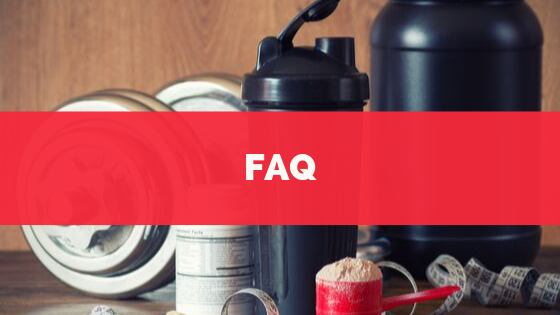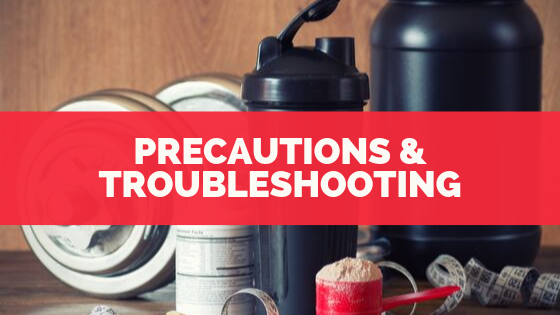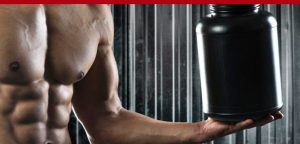by Ted Ryce
370: The Ultimate Supplement Guide For Fat Loss with Ted Ryce
by Ted Ryce
by Ted Ryce
370: The Ultimate Supplement Guide For Fat Loss with Ted Ryce
370: The Ultimate Supplement Guide For Fat Loss with Ted Ryce
more
by Ted Ryce
370: The Ultimate Supplement Guide For Fat Loss with Ted Ryce
(Subscribe to the Podcast Here)
(Watch This Video Training Here)
Getting a good amount of sleep is incredibly important for your health. You will NEVER look, feel, or perform your best unless you get the proper quantity or quality of sleep. And the harder you push yourself, the more sleep you’ll need to avoid overtraining or burnout. In this episode, leading fitness trainer and health coach Ted explains why you should not trust the supplement industry, the 8 sleep supplements that actually work and the 3 that are a complete waste of your money. Listen Now!
Why This Guide Is Important?
Getting a good amount of sleep is incredibly important for your health. You will NEVER look, feel, or perform your best unless you get the proper quantity or quality of sleep. And the harder you push yourself, the more sleep you’ll need to avoid overtraining or burn out.
Beyond that, poor sleep is linked with a higher risk of early death, heart disease, diabetes, stroke and obesity. Despite most people being aware of these dangers, sleep quality and quantity are at an all-time low, and people increasingly suffer from poor sleep.
While I’ll share supplements that will help you sleep better, know that good sleep often starts with practicing good sleep habits. So don’t think taking a supplement will fix your problem if you drink too much caffeine during the day, too much alcohol at night, and stay up late with blue lights on full blast. That said, for some people good sleep hygiene isn’t enough. If you require a little extra help to get a good night’s sleep, consider trying the following sleep-promoting supplements that I will discuss in this guide.
Why You Shouldn’t Rely On Sleep Supplements?
While supplements can help, make sure you address the underlying issue that is disrupting your sleep:
- Practicing good sleep hygiene
- Underlying medical conditions like sleep apnea, depression, prostate condition
- Chronic STRESS
- Chronic pain
- Unresolved trauma

What Supplements Are Worth Your Money
Magnesium
Magnesium (Mg) Magnesium is the fourth most abundant mineral in the human body. It plays several important roles in your health—including your sleep. Magnesium plays a role in supporting deep, restorative sleep by maintaining healthy levels of GABA, a neurotransmitter that promotes sleep.
If you’re not getting enough magnesium, it can lead to an increase in neuronal excitation (aka racing mind) causing a disruption to your sleep.
It’s hard to determine your magnesium levels because most of it is stored inside your cells and in your bones. Magnesium is lost through sweat, so if you’re an athlete or live in a hot climate (and you’re actually outside sweating) you’re more likely to need more magnesium.
Too much magnesium from food does not pose a health risk in healthy individuals because the kidneys eliminate excess amounts in the urine. However, high doses of magnesium from dietary supplements or medications often result in diarrhea that can be accompanied by nausea and abdominal cramping. Keep in mind that it may interact with some medications and can be dangerous for people with kidney disease.
Magnesium interacts with the following medications. So if you’re taking any of these, make sure you check with your doctor before taking a magnesium supplement:
- Bisphosphonates
- Antibiotics
- Diuretics
- Proton pump inhibitors
To supplement with magnesium, start with a dose of 200 mg of elemental magnesium once a day. You can increase this dose up to 350 mg after a week if you don’t experience improved sleep taking the lower dose. Take magnesium 30-60 minutes before bed for increase the quality of your sleep.
IMPORTANT: Not all magnesium supplements tell you how much elemental Mg is in each serving.
Also, avoid taking magnesium, calcium, iron, and zinc at the same time in high amounts as these minerals will compete for absorption.
My Recommendations:
Natural Stacks: MagTech Magnesium
Use Code LEGENDARY15 to save 25% on your first order.
Double Wood Magnesium L-Threonate
Melatonin
Melatonin is a natural hormone that plays a role in sleep. Melatonin production and release in the brain is related to time of day, rising in the evening and falling in the morning. Light at night blocks its production. Melatonin dietary supplements have been studied for sleep disorders, such as jet lag, disruptions of the body’s internal “clock,” insomnia, and problems with sleep among people who work night shifts.
Although your body produces it naturally, melatonin levels decline as we age so supplementing with it may improve sleep quality. Also, people living modern lives who don’t get exposed to natural light early in the day and expose themselves to too much artificial light at night may have disrupted melatonin production as well.
Another interesting benefit of melatonin is that it can help people who suffer with gastroesophageal reflux disease (GERD). This is a condition caused by the backflow of stomach acid into the esophagus, resulting in symptoms like heartburn, nausea and burping. This happens because melatonin has been shown to block the secretion of stomach acids.
One study in 36 people showed that taking melatonin alone or with omeprazole — a common GERD medication — was effective at relieving heartburn and discomfort.
Another study found that a supplement containing melatonin reduced symptoms of GERD in 100% of study participants compared to only 65.7% of the group taking omeprazole.
How Much To Take:
Start with 0.5 mg (500 mcg) half an hour before bed and see how it works for you. Then you can experiment by increasing the dose by 0.5 mg each week until you find the lowest effective dose that works for you.
Although melatonin is very safe (studies have used doses up to 100 mg and people have tried to use it to commit suicide and it doesn’t work), I don’t recommend taking more than 5 mg. Time-release melatonin may be more effective at sustaining sleep throughout the night.
But I’ve found this to be very individual according to my experience and feedback from clients. You’ll have to test different supplements to see what works best for you.
My Recommendations:
Source Naturals Melatonin for Occasional Sleeplessness
Ashwagandha
Ashwagandha (Withania somnifera) is a central herb in Ayurvedic medicine, the traditional medicine system native to India where it has been used for thousands of years.
The species name, Somnifera, means “sleep-inducing” due to ashwaganda being recommended for improved sleep for hundreds of years.
Ashwagandha is considered an adaptogen (natural compound that help the body adapt to stress). It’s believed to work by balancing the immune system and hormonal systems response to stress. In other words, it helps lower stress hormones and decrease inflammation.
Chronic stress is an epidemic due to the relentless pace and pressures of today’s modern lifestyle.
So if stress is a problem in your life, then ashwaganda is a good choice to test for reducing stress and improving sleep quality.
Although there are several active components in Ashwaganda, triethylene glycol is the ingredient responsible for its sleep inducing effects.
How Much To Take:
The clinical dose that has been used in studies is 600 mg of the ashwaganda KSM-66 extract with 5% Withanolides.
Adaptogens are most effective when you use them consistently over time.
That means small, daily doses for long periods are better than a few doses “just when you need them.”
My Recommendations:
CBD
By now, you’ve probably heard someone mention CBD. And you probably know it’s a cannabinoid and comes from the same plant as marijuana. Unlike THC (the other main cannabinoid in marijuana), isolated CBD won’t get you “high.”
Isolated CBD has shown a ton of promise in animal research (anxiety, sleep, pain, inflammation, cancer, etc).
Unfortunately, there are relatively few human trials as of 2019. Due to the industry being unregulated, CBD supplements often contains way lower or higher doses than the label states—sometimes even containing unlisted THC. Keep that in mind when choosing a product.
How Much To Take:
This is a difficult question to answer. Except for the pharmaceutical Epidiolex (used to treat epilepsy), CBD supplements are not regulated. So batches often vary in potency. And the potency depends on how you ingest CBD. Be sure to read product labels closely to understand what you’re getting.
You should generally start with a low dosage and go slow with increasing your dose. There may also be variations in actual CBD content between products. Use caution when starting a new package or switching dose forms. A wide range of CBD doses has been tested in clinical studies, but more evidence is needed before safe and effective dose recommendations can be made for specific uses.
Many oils come in 1 milligram per drop concentrations, so increasing dosage is straightforward. Be sure to read product labels closely to ensure you know what amount each drop provides.
Gummies can also come in standard doses, often 5 milligrams per gummy. But be sure to clarify this before changing your dose.
Vape oil dosing can also be tricky. It depends on exactly how much you inhale and the concentration of the vaping liquid.
My Recommendations:
Dream CBD™ combines full-spectrum hemp extract blended with terpene-rich Lavender Olive Oil and an optimal dose (0.5mg) of Melatonin. I love this CBD product because it’s a combination of my favorite supplements for sleep.
Also, this product is designed for daily use without disrupting the body’s natural circadian rhythm. Allowing you to fall asleep faster, stay asleep longer and wake up feeling refreshed. I’m not going to recommend other brands because I didn’t see results. And I tried a lot of the CBD products on Amazon.
Use Code LEGENDARY15 to save 25%
Tart Cherry Juice
Tart cherries, also known as sour or Montmorency cherries, have become increasingly popular over the past few years. Although I talked about tart cherry juice in the Muscle Growth & Exercise Performance Supplement Guide, it’s also a potent sleep supplement due to its natural melatonin content.
Since cherry juice has a higher concentration of melatonin than the whole fruit, the research has focused on the juice.
In one study, participants suffering from insomnia drank either 16 ounces (480 ml) of tart cherry juice or the same amount of a placebo juice each day for two weeks. The cherry juice increased sleep time by an average of 85 minutes
I’ve used tart cherry juice on and off for years and I can tell you from personal experience that it’s powerful for recovery, decreasing inflammation, and sleep. And it tastes good too.
How Much To Take:
Most of the studies I looked at used 1oz (30mL) of tart cherry juice concentrate twice a day. I would start with 1oz to see if you notice a difference. Then try 2oz per day—one in the morning and one at night—to see if you notice more benefits. It’s important to take the right dosage to avoid a melatonin “hang over” from taking too much.
My Recommendations:
FruitFast Tart Cherry Juice Concentrate
Lavender
Lavender (Lavandula) is traditionally used in aromatherapy for its relaxing scent but recent research shows that taking lavender supplements can reduce insomnia, increase slow-wave (deep) sleep, and reduce anxiety.
It doesn’t have a sedative effect so you may not feel anything from taking the supplement compared to CBD or even melatonin.
Studies showing improvements in sleep quality have mostly been with people suffering from insomnia and people with generalized anxiety disorder.
Additional studies show that people without these issues may benefit as well. But you’ll need to test it on yourself.
One of the benefits is that participants in studies taking lavender have a reduction in insomnia symptoms and wake up less during the night.
How Much To Take:
To supplement orally, take 80 mg of Silexan (a lavender oil preparation standardized for the active component containing linalool at a 25 – 46% of total weight) around 30–60 minutes before bed. If you don’ feel a difference after a week or two, you can increase the dose to 160 mg. This is the maximum dose you should use.
You can also use lavender oil too. The studies done on it aren’t that solid due to lacking a placebo. The studies that exist used at least 30 minutes of exposure in a well-ventilated room at night promote sleep.
My Recommendations:
Integrative Therapeutics Lavender Oil
Lemon Balm
Lemon balm (Melissa officinalis) is an aromatic herb has been used for reducing stress and improving sleep since the Middle Ages.
Specifically, it has been shown to reduce the time it takes to fall asleep. Although it can be take as a tea, you can also use standardized extracts that can be taken orally.
In one study, the participants experienced a 42% reduction in insomnia symptoms after receiving 600 mg of lemon balm extract per day for 15 days.
Since it has a mild sedative effect, you shouldn’t take it during times when you need to be alert or aren’t experiencing anxiety.
How Much To Take:
The dosage range for lemon balm is 300–1,200 mg taken 30–60 minutes before bed. Start with 300 mg then increase by 300 mg per week until you reach the lowest effective dose. Don’t take more than 1200 mg.
You can drink lemon balm tea or use the essential oil as aromatherapy, but it’ll be more difficult to dial in the right dose. Studies on lemon balm have focused on oral supplementation because it’s easier to standardize.
My Recommendations:
Oregon’s Wild Harvest Lemon Balm
Valerian
Valerian root (Valeriana officinalis) has a been used for centuries as an herbal remedy to reduce anxiety and promote sleep.
Although it’s one of the most researched sleep supplements on the market, it’s not yet clear how it works at the physiological level. Researchers believe it subtly increases the levels of a chemical known as gamma aminobutyric acid (GABA) in the brain. GABA is a neurotransmitter that contributes to a calming effect in the body.
How Much To Take:
Follow the directions on the supplement you buy and take a capsule (or drink Valerian tea) 30–60 minutes before bed.
If you choose to supplement orally, look for products that contain capsules standardized for 0.8–1% valerenic acids, like the one I’ll recommend. That said, I’ve personally found doses and extracts to be highly individualized.
My Recommendations:
Nature’s Way Standardized Valerian Root

What Sleep Supplements To Avoid
While the supplements I’ve just covered have scientific evidence supporting their use, there are some that you should avoid.
Many people don’t get the restful night’s sleep they seek and so they turn to sleep medications to help. But only a third of people who took sleep medications—either OTC or prescription—reported very good or excellent sleep on those nights.
And they often don’t wake refreshed: Nearly 6 out of 10 people taking sleep medications reported side effects such as feeling drowsy, confused, or forgetful the next day.
Among the most common reasons Americans gave for taking a sleep drug is that they thought it would work better than other approaches like exercise, healthy nutrition, stress management, mindfulness, etc.
So, if you’re taking sleep supplements I want you to take the right ones that can really help you. Also, I want you to remember that living a healthy lifestyle is the key to better sleep.
Caffeine
Caffeine is a powerful drug that stimulates your central nervous system. Although people with a caffeine tolerance may still be able to fall asleep after ingesting caffeine mid-afternoon or in the evening, it will still negatively affect the quality of your sleep.
So don’t drink caffeinated beverages or take caffeine supplements in the evening.
There are some studies suggest that caffeine paired with 15-minute “coffee nap” can benefit alertness more than caffeine or naps alone, this benefit doesn’t apply to sleeping 7-9 hours at night.
Phenibut
Phenibut (4-amino-3-phenylbutyric acid) is a non-prescription “smart drug” or nootropic that’s become popular on on places like Reddit. The claims people make about it are that it helps treat social anxiety and can even induce euphoria. According to one study I read, phenibut was first synthesized by the Russians during the 1960s to relieve “tension, anxiety and fear.”
At the moment, Phenibut is technically legal to buy in the United States in pill or capsule form, and it’s fairly easy to buy on the internet.
The big issue I have with phenibut is that there isn’t much research to guarantee it’s safety. And it can cause dependence when taken regularly.
People who use phenibut regularly and then stop taking it may experience withdrawal symptoms that include nausea, muscle aches, anxiety, agitation, trouble sleeping, and even seizures.
OTC Sleep aides
Sleep medications that are available over the counter use antihistamines as their main active ingredient. Nytol, Sominex, and Unisom (the blue capsule form).
The problem is that tolerance to the sedative effects of antihistamines can develop quickly — so the longer you take them, the less likely they are to help you sleep. In addition, some over-the-counter sleep aids can leave you feeling groggy the next day. This is the so-called hangover effect.
Another issue is that some over-the-counter sleep aids contain other medications. For example, Tylenol PM contains not only 25 mg of diphenhydramine but also 500 mg of acetaminophen, a pain reliever.
You might not be aware of that if you’re focused only on the sleep benefits of a medication. Stick with lifestyle adjustments and the natural supplements I’ve recommended here.
Sleep Products That I Love
This is a bonus section with products that I love and have been helping me sleep better. I tried hundreds of sleep products in the past 10 years, and these are the ones that I saw a big improvement in my sleep quality.
Blue Light-Blocking Glasses
My Recommendations:
I’ve tried several different blue light-blocking glasses and Carbonshade was the best. Their glasses block 99.9% of melanopic lux. Melanopic lux includes all wavelengths of light falling between the range responsible for melatonin suppression and phase delay (i.e. blue + green). And they wrap around to your eyes to make sure no light sneaks in behind the frames.
Use Code TED to save 2O% Off Your First Order.
Sleep & Activity Tracker
My Recommendations:
The Oura Ring is the most advanced wearable on the market—especially if optimizing your sleep and recovery are important to you. It’s more expensive than other wearables but you get what you pay for. If you’re struggling with low energy levels or poor sleep, investing in an Oura Ring is a no-brainer.
Promocode: (No code, just use above link to save $50)
Soft Roam Ear Plugs
My Recommendations:
Ear plugs are something I wear almost every night. If you have a partner who snores, a pet that makes noise, loud neighbors, or live in a neighborhood with a lot of noise pollution, then opening a few dollars and wearing these every night can improve the quality of your sleep dramatically.
Sleep Mask
My Recommendations:
While I recommend you invest in blackout blinds, I know that many people travel. The Sleep Master Sleep Mask is the most comfortable and effective sleep mask I’ve used. It’s effective at blocking out the light and is comfortable as well.
Assembling Your Supplement Stack
The main stack stack contains two primary supplements: magnesium and melatonin (or tart cherry juice). Start with taking 200-350 mg of magnesium 30 minutes before bed. If falling asleep is still a problem after a week, then try adding 0.5 mg of melatonin.
You can increase your melatonin dose by 0.5 mg (500 mcg) each week until you find the lowest effective dose that works. Just don’t go over 5 mg (5,000 mcg). Start with these supplements for a week or two before you consider adding other supplements.
If you choose tart cherry juice, I still recommend getting a melatonin supplement if you travel frequently through time zones as it helps with jet lag.
For people with anxiety/overactive mind that causes issues falling asleep:
In addition to taking magnesium (200–350 mg) and melatonin (0.5), take lavender (starting with 80 mg of Silexan per day, working up to 160 mg/ day over the course of a week if the lower dose doesn’t work) and lemon balm (starting with 300 mg/day, working up to 600-1200 mg/day over the course of a couple of weeks if he lower dose doesn’t work).
Take all of these 30 minutes before bed.
For people who don’t have trouble falling asleep but never feel rested in the morning
In addition to magnesium (200–350 mg) and melatonin (0.5) half an hour before bed, take 600 mg of the ashwaganda KSM-66 extract.
Experiment with taking ashwaganda either in the morning, before exercise, or before bed to assess what timing works best for you.
FAQ
1) What if I have more than one of the sleep issues you mentioned?
Then I would suggest to start with the basics (magnesium and either a melatonin supplement, tart cherry juice, of the Natural Sacks CBD Dream) and adjust from there. Feel free o experiment and combine the supplements we’ve covered today. Test and find what works best for you and your particular sleep issue. Also make sure you see a sleep doctor if you have a medical problem like sleep apnea, nocturne, etc. to address the root of your sleep problems instead of using a supplement as a band-aid.
2) Can I add a supplement that isn’t covered in this presentation?
You could. But I recommend that you start with what I’ve outlined here before adding anything else. I don’t know about every sleep supplement out there, but the supplements I’ve covered today are the ones with the most science backing their use.
If you still decide to add a supplement that I haven’t covered, research the product and the company that makes it to ensure you’re getting a quality product from a reputable company.
3) Can I modify the recommended doses?
You can always take less than the recommended amount if you’re getting the desired effect. But never take more. It can be counterproductive or possibly harmful.
4) I get diarrhea when I took a magnesium supplement in the past. How do I avoid this?
“Disaster pants” is a well-known side effect of ingesting too much magnesium at one time. It can also be caused by taking a poorly absorbed form of like magnesium oxide.
The best way to avoid this is to take a supplement with high bioavailability and to split the doses up throughout the day. If you still have diarrhea after making these changes, then try lowering your dose or switching brands.
5) What’s elemental magnesium?
“Elemental” refers to the weight magnesium by itself. For example, taking 2000 mg of magnesium L-threonate contains 144 mg of elemental magnesium.
Make sure you read the supplement labels to understand the amount of magnesium you’re getting. If it says on the label, “Magnesium (from 2000 mg Magtein™ magnesium L-threonate) 144 mg” means means 144 mg of elemental magnesium (and 1856 mg of L-threonic acid).
Troubleshooting
Remember that supplements aren’t a substitute for good sleep hygiene. You should only take these supplements if lifestyle changes haven’t worked or if you’re implementing lifestyle changes at the same time. If you stay up until 3 am working or watching Netflix, popping a pill isn’t going to solve your problem.
And don’t feel like you have to take your sleep supplements every night. I’ve found that the nights I’m sleepy and don’t need melatonin, I actually sleep better without it.
Lastly, it might take a few weeks or even months of experimentation to find a stack that feels right for you. Keep experimenting and don’t give up. Once your sleep quality has improved, try going without your sleep supplements to see if you’re still getting benefits from taking them.
Are You Still Confused About What Supplements Work And What To Avoid?
We know that supplements are big business. But it’s not like you can trust supplement companies. They have one goal: to convince you to buy their supplements.
Each month, we get hundreds of messages and emails from frustrated listeners. They’re sick of misinformation and harmful marketing hype. They just want to know what’s a waste of money and what works. They’re looking for guidance on the right supplements to help them achieve their specific health goals.
So, Ted combined his 20 years of experience as a fitness trainer and health coach to help you figure out exactly what to take.
The Ultimate Supplement Guides are the result. We’ve taken our decades of knowledge and experience and summed it up in a series of practical guides, with each focused on a specific health goal – burning fat, building muscle, sleep, memory and focus, joints, and much more.
>>Click Here To Get Instant Access now!














